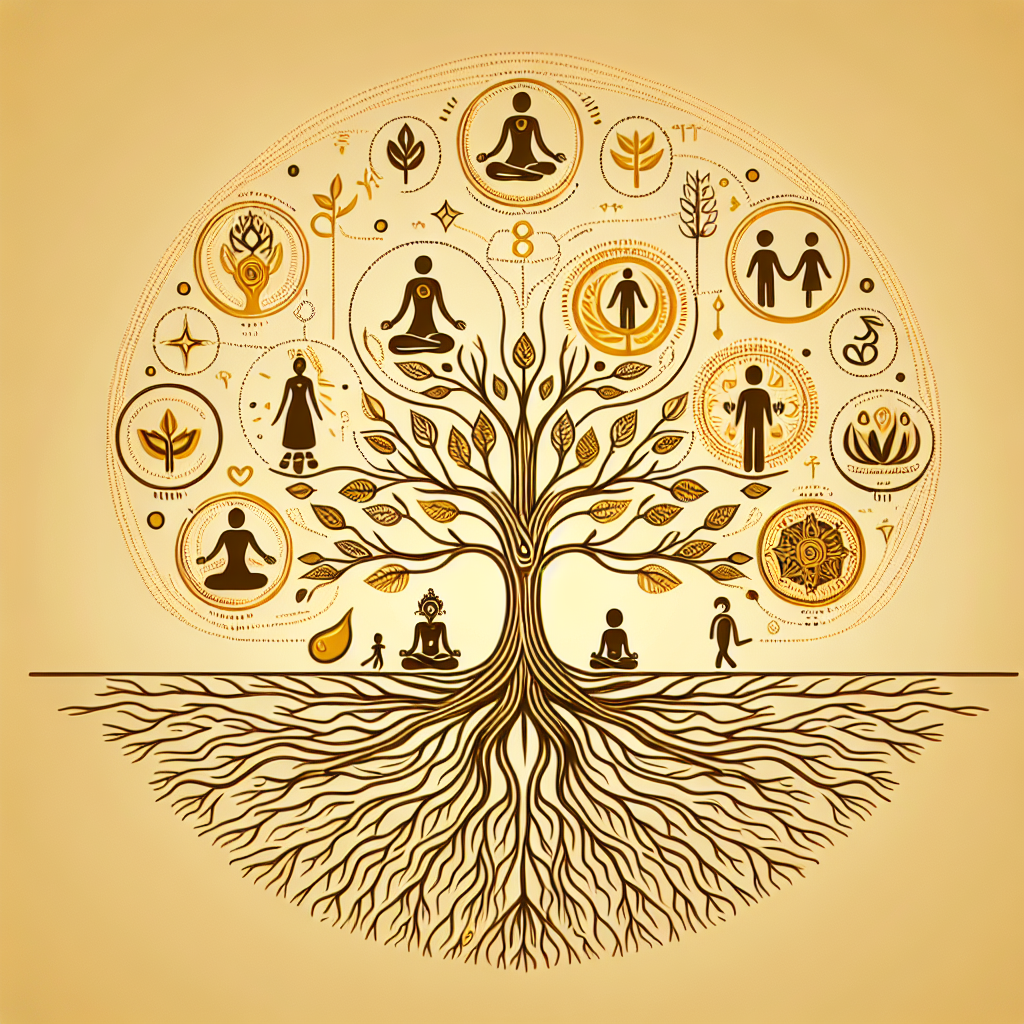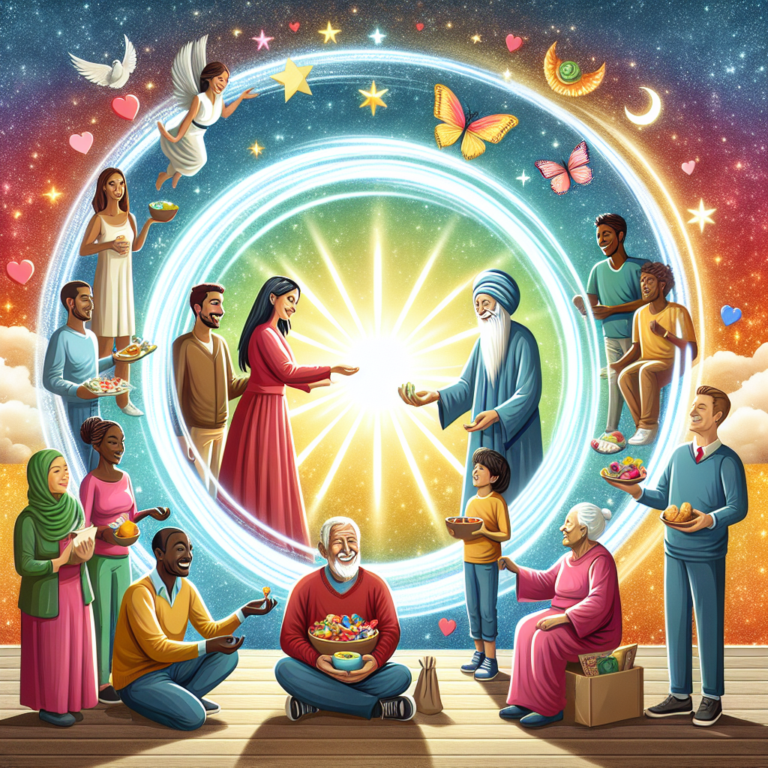The Evolution of Friendship in Family Karma: A Deep Dive
"Family Karma," a reality television series on Bravo, has captivated audiences with its intricate portrayals of the lives, relationships, and cultural nuances of Indian-Americans living in Miami. The show chronicles the lives of a group of friends navigating the trials and tribulations of adulthood, all while balancing their rich heritage and evolving identities in America. At the heart of "Family Karma" is not just the glitz and glam of reality TV but a deeper exploration of friendships—how they evolve, fracture, and sometimes sparkle amid familial and societal expectations. This article delves deep into the evolution of friendship within the show, considering various aspects that have influenced these bonds over the seasons.
Cultural Context of Friendship
Friendship within the context of "Family Karma" is multifaceted, reflecting both Eastern and Western cultural ideals. In Indian culture, relationships often take precedence over individual aspirations. This collective mindset influences how friendships are formed and maintained among the cast. Loyalty, respect for one another’s families, and a sense of duty toward community are recurring themes. As the characters balance their traditional values with the individualistic ideals prevalent in American society, we see a dynamic landscape of friendships that adapt and change.
Friendships Versus Family Ties
The show establishes early on that friendships within Indian-American communities can be as strong, if not stronger, than familial ties. Characters like Vishal Parvani and Richa Sadana create a unique blend of camaraderie and tension in their relationships. Their bonds often reflect the idea that friends can be considered an extended family, demonstrating how these friendships serve as a support system.
However, as seen in various plotlines, the delicate equilibrium between friendship and family can spark significant tension. For instance, moments when friendships clash with family loyalty often lead to conflict, showcasing the complications of maintaining both. These scenarios invite audiences to engage with the nuanced nature of love and loyalty, challenging the notion that familial bonds should always come first.
The Development of Key Friendships
One of the most compelling aspects of "Family Karma" is witnessing the development of key friendships across seasons. For example, friendships like that of Amrit Kapai and Nicholas Kouchoukos evolve significantly. Their interactions oscillate between playfulness, deep emotional support, and moments of tension, particularly as they navigate romantic relationships and the implications of coming out within their community. As Amrit grapples with his identity and friendship, the show provides a poignant lens into the struggles that often accompany the intersection of love and friendship.
Moreover, the impact of co-parenting friendships, such as that between Bali Chainani and her friends, is another fascinating dynamic to explore. Bali’s role as a mother juxtaposes her friendships, showing how the responsibilities of parenting can influence and sometimes strain these relationships. Her journey reflects the complex balancing act that many women experience as they shift from being carefree friends to responsible caretakers.
Conflict Resolution and Forgiveness
In any friendship, conflict is inevitable. "Family Karma" doesn’t shy away from showcasing disagreements and misunderstandings. A notable moment arises when friends must confront their differences, addressing past grievances. For instance, the fallout between Vishal and Anisha Ramakrishna over misunderstandings provides a platform to discuss effective conflict resolution. The show highlights how addressing issues head-on and practicing open communication can help mend rifts—a critical lesson in any friendship.
Moreover, the theme of forgiveness plays a significant role in the evolution of friendship on the show. Characters who once stood at odds often find a path back to each other through maturity and introspection. This growth offers viewers insights into how friendships can be redefined through understanding and compassion, underlining the importance of resilience in relationships.
The Role of New Friendships
As new cast members join the show, the dynamics within the existing friend groups shift. This evolving landscape allows viewers to see how the introduction of new personalities can enrich or complicate existing friendships. For example, when new members bring fresh perspectives or challenge the status quo, existing friendships must adapt and evolve.
Throughout the seasons, different friendships emerge, showcasing the importance of diversity within the friend group. These new relationships often act as catalysts for change, prompting established friends to reflect on their interactions and the foundational elements of their connections. New friendships not only add drama but also serve as reminders that personal growth sometimes thrives outside traditional friend circles.
Friendship under Pressure
Reality television can put friendships under a microscope, magnifying both positives and negatives. As friendships face the pressure of cameras and public scrutiny, the cast members reveal their vulnerabilities. The show’s portrayal of social media’s impact on relationships sheds light on the modern challenges that friendships face. The digital age introduces new forms of communication and conflict, often complicating discussions about loyalty and trust.
This theme comes to life when cast members address rumors or drama fueled by online interactions. Viewers witness the characters coping with these pressures and learn how critical it is to establish trust within friendships that operate under a public lens. This unique perspective invites audiences to reflect on their relationships, emphasizing the need for establishing boundaries and trust, especially in the age of social media.
Conclusion
The evolution of friendship in "Family Karma" offers a rich tapestry of human experiences woven together by culture, conflict, and the influence of modernity. As the characters navigate their lives, the show’s portrayal of friendship transcends mere screen time, serving as a mirror to broader societal perspectives around relationships. From the complexities of identity to the ever-present dance between tradition and modernity, the friendships depicted in "Family Karma" resonate with anyone who has experienced the joys and trials that come with building meaningful connections.
Frequently Asked Questions (FAQs)
1. What is "Family Karma"?
"Family Karma" is a reality television series on Bravo that follows the lives of Indian-American friends living in Miami, highlighting their cultural struggles, family dynamics, and friendships.
2. How does culture influence friendships in the show?
The show illustrates how traditional Indian values prioritize collective relationships, loyalty, and respect, impacting how friendships are formed and maintained among the characters.
3. What are some key themes in the friendships depicted in "Family Karma"?
Key themes include loyalty, conflict resolution, the importance of communication, and the impact of cultural context on personal relationships.
4. How do new cast members affect existing friendships?
New cast members introduce fresh dynamics that can enrich or challenge established friendships, prompting personal growth and reevaluation of existing relationships.
5. What can viewers learn from the friendships in "Family Karma"?
Viewers can learn the importance of conflict resolution, the need for trust and communication, and the power of forgiveness in maintaining meaningful relationships.
It seems like your message got cut off or is incomplete. Could you please provide more context or specify what kind of prompt you are looking for? This could be a writing prompt, a question, or anything else!, #Evolution #Friendship #Family #Karma #Deep #Dive, #Evolution #Friendship #Family #Karma #Deep #Dive, 1736239430, the-evolution-of-friendship-in-family-karma-a-deep-dive





